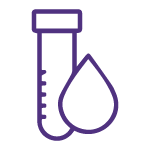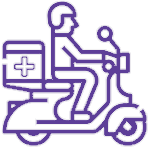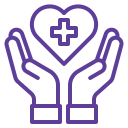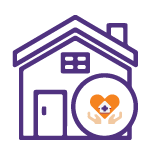COVID Awareness (2025) & Services Available @ RxDx
COVID Care Services @ RxDx
Doctor Consultations (In-Clinic & Online)
Consult experienced physicians either by visiting our clinics or from the safety of your home via secure video consultations. Get expert advice, prescriptions, and continuous support throughout your COVID recovery journey.
Lab Tests: RTPCR / RAT + Fever Panel
Get reliable COVID diagnostics at RxDx, including:
- Rapid Antigen Test (RAT) – Quick detection in 30 minutes at just ₹450.
- RT- PCR Test
- RT-PCR – ₹600
- Logistics – ₹250
- Total – ₹850
- Results typically available within 48 hours.
Home Sample Collection:
- ₹400 for visits within 5 km radius.
- Additional ₹25/km beyond 5 km.
Our trained professionals ensure safe, hygienic sample collection with minimal turnaround time. Fever Panel options also available on request.
Medicine Delivery
Get prescribed COVID medications and essential supplies delivered to your doorstep. Our pharmacy team ensures safe packaging and timely delivery to support uninterrupted treatment and isolation protocols.
Day Care for Mild COVID Cases
Receive medical supervision and supportive care in a controlled day-care setting for mild to moderate COVID cases. Ideal for patients needing observation without hospitalization.
COVID Care at Home
Avail personalized COVID care at home with remote monitoring by qualified nurses, physiotherapists, and doctors. Includes vital monitoring, oxygen support, and rehabilitation to aid smooth recovery at home.
Enquire for COVID Care Services @ RxDx
Updated COVID-19 Snapshot (as of 4th June 2025)
Total Active Cases in Karnataka
311
Bengaluru City
Data not separately reported; Bengaluru remains the primary hotspot
Cumulative Cases in 2025
529
Recovered
Fatalities
4
Weekly Positivity Rate
Hospitalization
ICU/Ventilator Use
3
Home Isolation
patients
Variant Watch: NB.1.8.1 & LF.7 (Omicron Lineage)
New Omicron subvariants NB.1.8.1 and LF.7 have been identified and are spreading in Bengaluru. While generally mild, these variants have high transmissibility. Authorities urge strict adherence to Covid Appropriate Behaviour (CAB).
Variant Comparison: Then vs Now
| Category | Phase 1/2/3 (2020–2022) | New 2025 (NB.1.8.1 / LF.7) *Bengaluru |
|---|---|---|
| COVID Phase | Phase 1: Initial outbreak Phase 2: Lockdowns, vaccine rollout Phase 3: Omicron waves |
Surveillance phase with minor surges managed at state level |
| Viral Strains | Wuhan, Alpha, Delta, Omicron (BA.1–BA.5, XBB) | Omicron subvariants NB.1.8.1 and LF.7 |
| Spread | Rapid, global, airborne transmission | High transmissibility locally; Positivity ~17.2% Karnataka (as of 4th June) |
| Severity | Delta – severe Omicron – milder but disruptive | Generally mild with fewer hospitalizations |
| Mortality | High in Delta phase (esp. elderly, unvaccinated) | Low, 4 fatality in Karnataka (as of 4th June) |
| Risk Groups | Unvaccinated, elderly, comorbid patients | Same; elderly and chronically ill remain vulnerable |
| Symptoms | Fever, dry cough, fatigue, anosmia, breathlessness | Sore throat, mild cough, fatigue, congestion, muscle pain, GI issues |
Do’s and Don’ts (Updated with Govt Advisory)
Do’s:
- Stay Alert, Not Anxious – Trust official sources only
- Wear a Mask – Especially in crowded/public places
- Share Travel Info – Inform health authorities about travelers
- Practice Hand Hygiene – Wash regularly, use sanitizer
- Keep Distance – Maintain physical distancing in public areas
- Report Symptoms Early – Fever, cough, chest pain, breathlessness
- Cooperate with Testing – Random testing, surveillance is key
- Monitor Children – Keep symptomatic kids home from school
- Follow School Guidelines – Ventilation, hygiene
- Keep Public Areas Clean – Dispose waste responsibly
- Report Community Trends – Use IHIP portal for COVID-like symptoms
- Respond Responsibly – Govt is on alert; lead a normal but cautious life
- Call Helpline – 1800 425 8330 (health), 108 (transport)
Don’ts:
- Don’t trust WhatsApp forwards or unverified sources
- Don’t ignore flu-like symptoms or delay testing
- Don’t self-medicate without consulting a doctor
- Don’t visit clinics if symptomatic – Use teleconsultation
- Don’t attend school/office/public events when unwell
Quick History: How Are These Variants Different?
- Earlier Variants (e.g., Delta) were aggressive, often leading to hospitalizations and lung complications.
- NB.1.8.1 and LF.7, both Omicron subvariants, primarily affect the upper respiratory tract with mild to moderate symptoms.
- Hospitalizations are rare, and mortality is low as of June 2025.
- Existing vaccines and booster shots offer significant protection against these newer strains.
Who Should Be Extra Cautious?

Children
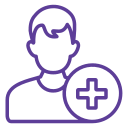
Elderly (60+)

Pregnant Women

Immuno-compromised individuals
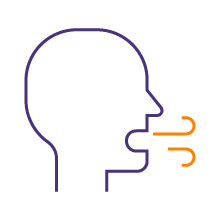
Comorbidity - Patients with diabetes, asthma, cancer or hypertension
FAQ’s
General COVID Questions
What are the new COVID-19 variants circulating in Bengaluru?
The NB.1.8.1 and LF.7 subvariants (Omicron lineage) are the dominant strains in Bengaluru as of May 2025. They are highly transmissible but generally mild.
How serious is COVID-19 in 2025?
While new variants spread quickly, the severity is low. Hospitalizations and deaths are rare, especially among vaccinated individuals.
Are the new variants more dangerous than Delta or Omicron (BA.5)?
No. These Omicron subvariants mostly affect the upper respiratory tract and present milder symptoms.
Can I get reinfected with COVID-19 in 2025?
Yes. Reinfections are possible, particularly with new variants, though symptoms are usually milder in previously vaccinated or infected individuals.
How long does it take to recover from these variants?
Most patients recover within 5–10 days with rest, hydration, and basic medical care.
Symptoms & Testing
What are the common symptoms of NB.1.8.1 and LF.7?
- Sore throat
- Mild cough
- Nasal congestion
- Fatigue
- Muscle pain
- Gastrointestinal issues (e.g., nausea)
When should I get tested for COVID?
- If you have cold/flu-like symptoms
- After exposure to a confirmed case
- Before visiting vulnerable individuals or traveling
- If attending school, office, or public events with symptoms
What are my testing options at RxDx Clinics?
- RAT-TAF: ₹450, 30-minute results
- RT-PCR: ₹850 (incl. logistics), results in 24–48 hrs
- Home sample collection: ₹400 within 5 km + ₹25/km thereafter
Which test should I choose - RAT or RT-PCR?
- RAT is suitable for quick screening.
- RT-PCR is preferred if RAT is negative but symptoms persist or for confirmatory diagnosis.
Care & Treatment
What should I do if I test positive?
- Isolate immediately
- Inform close contacts
- Monitor symptoms and oxygen saturation
- Consult your doctor online or in-clinic
Can I recover at home or do I need hospitalization?
Most people recover at home. Hospitalization is rarely needed unless severe symptoms develop or you belong to a high-risk group.
What COVID services does RxDx offer in Bengaluru?
- In-clinic & teleconsultation
- Lab testing (RAT, RT-PCR)
- Home sample collection
- Day-care observation for mild cases
- Medicine delivery
- Home health care services (nurse/doctor visits)
What is the cost of COVID-19 consultation at RxDx?
Rates may vary by doctor or service (online/in-person). Please call 901 409 1111 for current consultation charges.
Home Care & Isolation
How long should I stay in isolation if COVID-positive?
- 24–48 hrs symptom-free without medication
- Negative test result (optional but advised in high-risk households)
What should I keep at home for COVID recovery?
- Thermometer
- Pulse oximeter
- Prescribed medication
- ORS / electrolytes
- Face masks, hand sanitizers
Can RxDx provide oxygen or home care support if needed?
Yes. RxDx offers home visits by qualified nurses/doctors and support services including oxygen therapy and physiotherapy.
High-Risk Groups
Who is at greater risk of complications from COVID-19?
- Senior citizens (60+)
- Pregnant women
- Children (especially with comorbidities)
- Diabetics, cancer patients, asthmatics, hypertensives
- Immuno-compromised individuals
Should high-risk individuals get frequent boosters?
Follow your doctor’s advice. Boosters are recommended every 6–12 months for at-risk individuals.
Prevention & Safety
Do I need to wear a mask in 2025?
Yes, especially in crowded indoor spaces, public transport, schools, and hospitals.
Are public places in Bengaluru safe now?
Transmission risk still exists. Practice COVID-appropriate behaviour in malls, buses, schools, offices and markets.
What is COVID-Appropriate Behaviour (CAB)?
- Mask up
- Wash hands
- Maintain social distance
- Avoid crowded spaces
- Use teleconsultation when sick
Bengaluru-Specific
Why are most active cases in Bengaluru?
Urban density, travel, and indoor congregation make Bengaluru a hotspot despite overall low case numbers in Karnataka.
What are Bengaluru’s COVID stats as of May 27, 2025?
- Active cases: 73
- Positivity rate: ~19.3%
- New cases: 15 in last 24 hrs
- 1 fatality reported in 2025
How can I stay updated on COVID news in Karnataka?
- Follow the Department of Health and Family Welfare, Karnataka
- Read verified updates from TOI, Hindustan Times and RxDx Clinics
Bengaluru Watch
Bengaluru continues to report a significant number of active COVID-19 cases in Karnataka. Urban hotspots include malls, buses, markets, schools, and offices. Strict adherence to COVID-appropriate behavior (CAB) remains essential.
RxDx is here for you.
All RxDx Branch Locations
Covid Care in Whitefield
Covid Care in Malleswaram
Covid Care in Siddapura
Covid Care in Kadugodi
Covid Care in Sarjapur Road (Dommasandra)
Covid Care in Domlur
Covid Care in Jakkur
This page reflects updates as of 4th June 2025 and is compiled from government bulletins and medical sources.



